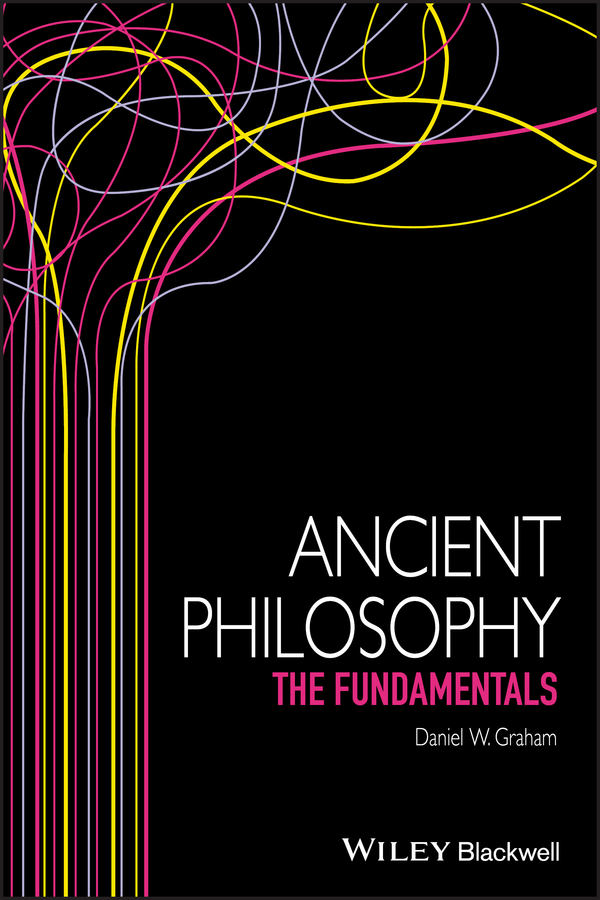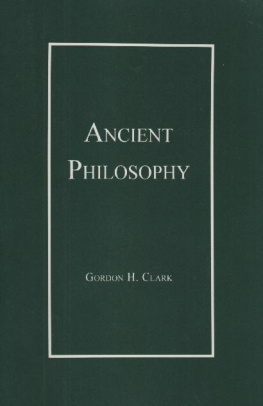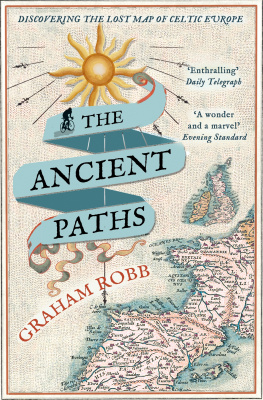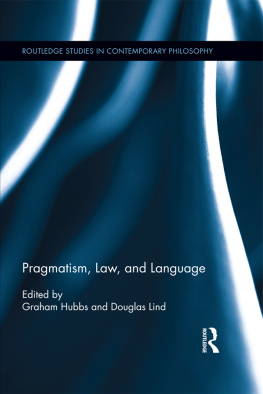Daniel W. Graham - Ancient Philosophy: The Fundamentals
Here you can read online Daniel W. Graham - Ancient Philosophy: The Fundamentals full text of the book (entire story) in english for free. Download pdf and epub, get meaning, cover and reviews about this ebook. year: 2020, genre: Religion. Description of the work, (preface) as well as reviews are available. Best literature library LitArk.com created for fans of good reading and offers a wide selection of genres:
Romance novel
Science fiction
Adventure
Detective
Science
History
Home and family
Prose
Art
Politics
Computer
Non-fiction
Religion
Business
Children
Humor
Choose a favorite category and find really read worthwhile books. Enjoy immersion in the world of imagination, feel the emotions of the characters or learn something new for yourself, make an fascinating discovery.

- Book:Ancient Philosophy: The Fundamentals
- Author:
- Genre:
- Year:2020
- Rating:3 / 5
- Favourites:Add to favourites
- Your mark:
- 60
- 1
- 2
- 3
- 4
- 5
Ancient Philosophy: The Fundamentals: summary, description and annotation
We offer to read an annotation, description, summary or preface (depends on what the author of the book "Ancient Philosophy: The Fundamentals" wrote himself). If you haven't found the necessary information about the book — write in the comments, we will try to find it.
Ancient Philosophy: The Fundamentals — read online for free the complete book (whole text) full work
Below is the text of the book, divided by pages. System saving the place of the last page read, allows you to conveniently read the book "Ancient Philosophy: The Fundamentals" online for free, without having to search again every time where you left off. Put a bookmark, and you can go to the page where you finished reading at any time.
Font size:
Interval:
Bookmark:

Series Editor: A. P. Martinich, University of Texas at Austin
Each volume in the Fundamentals of Philosophy series covers a key area of study in philosophy. Written with verve and clarity by leading philosophers, these authoritative volumes look to reveal the fundamental issues and core problems that drive interest in the field.
- Julia Driver, Ethics: The Fundamentals
- Mark C. Murphy, Philosophy of Law: The Fundamentals
- Linda Trinkaus Zagzebski, Philosophy of Religion: An Historical Introduction
- Robert C. Koons and Timothy H. Pickavance, Metaphysics: The Fundamentals
- Daniel Graham, Ancient Philosophy: The Fundamentals
Forthcoming
Thom Brooks, Political Philosophy: The Fundamentals
Randall Curren, Philosophy of Education: The Fundamentals
Thomas Kelly and James Pryor, What Should We Believe? The Fundamentals of Epistemology
Ned Hall, Philosophy of Science: The Fundamentals
Daniel W. Graham

This edition first published 2020
2020 John Wiley & Sons, Inc.
All rights reserved. No part of this publication may be reproduced, stored in a retrieval system, or transmitted, in any form or by any means, electronic, mechanical, photocopying, recording or otherwise, except as permitted by law. Advice on how to obtain permission to reuse material from this title is available at http://www.wiley.com/go/permissions.
The right of Daniel W. Graham to be identified as the author of this work has been asserted in accordance with law.
Registered Office
John Wiley & Sons, Inc., 111 River Street, Hoboken, NJ 07030, USA
Editorial Office
111 River Street, Hoboken, NJ 07030, USA
For details of our global editorial offices, customer services, and more information about Wiley products visit us at www.wiley.com.
Wiley also publishes its books in a variety of electronic formats and by printondemand. Some content that appears in standard print versions of this book may not be available in other formats.
Limit of Liability/Disclaimer of Warranty
While the publisher and authors have used their best efforts in preparing this work, they make no representations or warranties with respect to the accuracy or completeness of the contents of this work and specifically disclaim all warranties, including without limitation any implied warranties of merchantability or fitness for a particular purpose. No warranty may be created or extended by sales representatives, written sales materials or promotional statements for this work. The fact that an organization, website, or product is referred to in this work as a citation and/or potential source of further information does not mean that the publisher and authors endorse the information or services the organization, website, or product may provide or recommendations it may make. This work is sold with the understanding that the publisher is not engaged in rendering professional services. The advice and strategies contained herein may not be suitable for your situation. You should consult with a specialist where appropriate. Further, readers should be aware that websites listed in this work may have changed or disappeared between when this work was written and when it is read. Neither the publisher nor authors shall be liable for any loss of profit or any other commercial damages, including but not limited to special, incidental, consequential, or other damages.
Library of Congress CataloginginPublication data applied for
Paperback ISBN 9781119110156
Cover Design: Wiley
Cover Image: atribut/Shutterstock
When I was asked to prepare this volume for the series Fundamentals of Philosophy, I recognized that there are already a number of valuable introductory works on ancient Greek philosophy in the marketplace. I have created this volume in an effort to provide a work that will both offer a basic survey of the field in a historical sequence of the most influential philosophers, and present an opportunity to enter into the philosophical debates that those philosophers initiated or continued. This work is meant to be accessible to a large audience, but to be more than a primer; it aims to engage the figures as philosophers, with theories and arguments. Accordingly, I hope that this work will prove to be of benefit both to the new student of philosophy and to the professional philosopher, classicist, or humanist who, in the increasingly specialized world of academia, wishes to become better acquainted with this field.
Ancient Greek philosophy grows out of mythological lore, develops its own idioms and problems, and then develops into a sophisticated study from which originate philosophy, natural science, and many other disciplines that we tend to think of as modern inventions. Fortunately, the earliest philosophy begins without technicalities, and subsequent generations add gradually to the vocabulary and theory of the field, so that a historical study of ancient philosophy can introduce the complications of theory gradually and sequentially, as I have tried to do. Needless to say, no slender onevolume study can do justice to the richness of Greek (and Roman) philosophy. I have provided in the endnotes references to important studies that can carry the reader on to more advanced studies of the material. I follow the story of Western philosophy from its prephilosophical mythological roots to its adoption by Christian philosophers who would transmit its messages to the Middle Ages. I have had to be selective in my coverage of thinkers and theories. But I have tried to cover the more important developments in philosophy, with some reflection on the social and political background they grew out of. I have also tried to indicate ways in which ancient thinkers carry on a conversation with their predecessors, and also offer valuable insights to their successors, including of course ourselves.
I would like to express my appreciation to Dr. Al Martinich for inviting me to undertake this project. This work was significantly improved by the suggestions of two anonymous readers, to whom I am indebted. I would also like to thank the editors and staff of Wiley, including Marissa Koors, Rachel Greenberg, Mohan Jayachandran, Manish Luthra, Deirdre Ilkson, Allison Kostka, Sindhuja Kumar, and Giles Flitney. I would also like to recognize my colleagues at Brigham Young University, a student research assistant, Michael Williams, and Michael Shaw of Utah Valley University, for advice and feedback on the project.
Introduction
In the 460s BC a young Greek tourist made a journey up the Nile river in Egypt in search of answers. Among other things, he wanted to know what made the Nile flood, for it flooded at an odd time: in midsummer, not in winter or spring when the rivers in Greece flood with seasonal rains and melting snow. When he asked the local priests, they could tell him nothing, he reports. Perhaps they informed him that the Nile god caused the floods. But that was no answer. He went on to evaluate three different philosophical theories: the floods were caused by the summer winds that blew from the north and pushed back the Nile waters as they flowed northward, heaping them up; or they were caused by water flowing into the Nile from Ocean, a mythical watercourse flowing around the rim of the flat diskshaped Earth; or they were caused by melting snows in high mountains to the south. The young man rejected all these theories for their manifest failures to get the facts right, and he proposed a complicated theory of his own. At roughly the same time, a Greek sailor from Massalia went on a voyage that took him through the Pillars of Hercules to the west coast of Africa. He saw there a river with flora and fauna like that of the Nile and noted heavy winds blowing offshore, which he thought supported the second theory of the Nile floods.
Next pageFont size:
Interval:
Bookmark:
Similar books «Ancient Philosophy: The Fundamentals»
Look at similar books to Ancient Philosophy: The Fundamentals. We have selected literature similar in name and meaning in the hope of providing readers with more options to find new, interesting, not yet read works.
Discussion, reviews of the book Ancient Philosophy: The Fundamentals and just readers' own opinions. Leave your comments, write what you think about the work, its meaning or the main characters. Specify what exactly you liked and what you didn't like, and why you think so.









